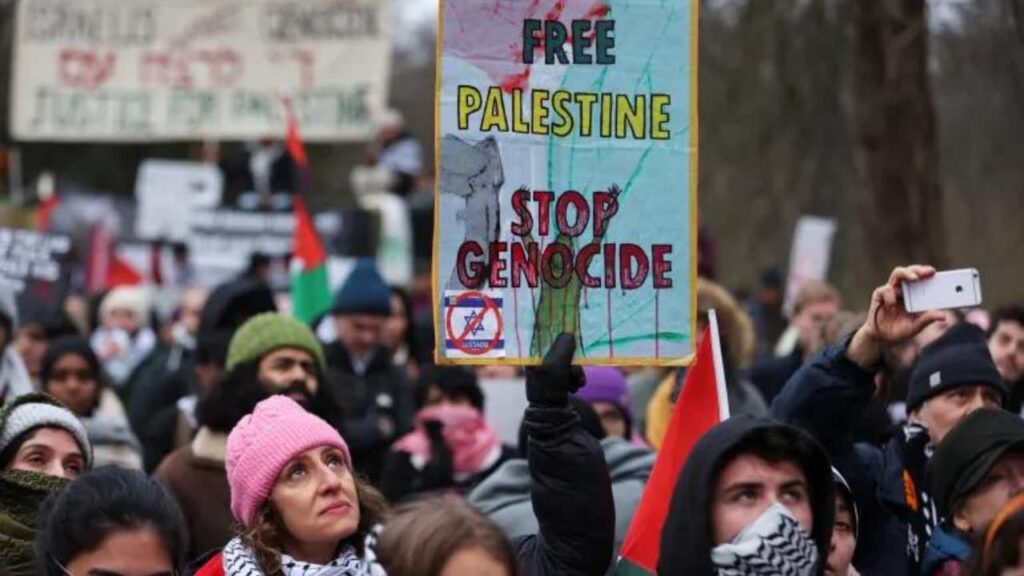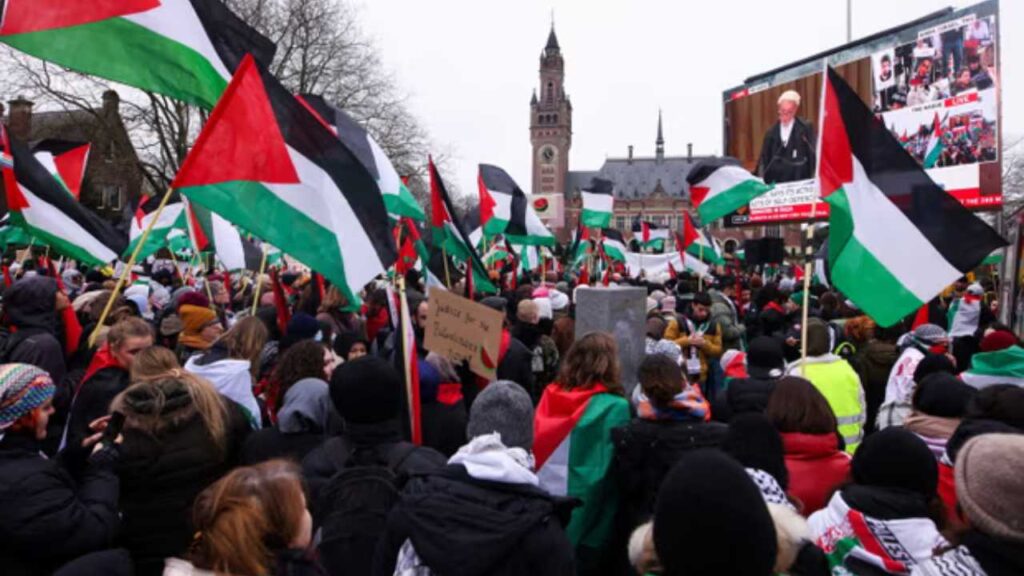In recent days, tensions in the Gaza region have escalated following the controversial “Return to Gaza” conference attended by Israeli cabinet ministers. The conference, where plans for new Israeli settlements in Gaza were discussed, has raised concerns and added complexity to an already volatile situation.
Hamas strongly condemned the conference, accusing Israel of defying international law and UN resolutions. According to Hamas, the conference advocated for the “voluntary migration” of Palestinians, a move deemed in violation of the International Court of Justice’s interim rulings on the Gaza war.
The statement from Hamas criticized the explicit call for the establishment of 21 new Israeli settlements, labeling the event as a “fascist conference” based on the concept of ethnic cleansing. The organization urged the international community and the UN to denounce these actions.
Amidst these developments, the Euro-Mediterranean Human Rights Monitor, a human rights group based in Geneva, reported that Israel continued to cause casualties in Gaza at a rate similar to pre-verdict levels. In the 48 hours following the ICJ rulings, the Israeli army reportedly killed at least 373 Palestinians, including 345 civilians, and injured 643 others.

Raids Continue
Recent Israeli forces’ raids in the village of Tekoa near Bethlehem have also drawn attention. A 16-year-old school student was reportedly shot during these operations, left on the ground without medical assistance, and is said to be in critical condition, according to local sources.
Reports highlight a pattern of widespread Israeli raids across different Palestinian cities, resulting not only in casualties but also in beatings and assaults on civilians going about their daily lives. In Jenin, a paramedic was beaten while trying to assist the wounded.
The Israeli military justifies these raids by claiming they are necessary to prevent Palestinians from detonating homemade explosive devices when Israeli military vehicles pass by. However, Palestinians argue that these actions are a form of revenge and a display of power and control over their lives.
UNRWA’s Funding Freeze Puts Palestinian Aid at Risk
In recent days, almost 9 Western countries, including the United States, Australia, Canada, Italy, Germany, Finland, the Netherlands, Switzerland, the United Kingdom, and Scotland, have decided to suspend funding to the United Nations Relief and Works Agency for Palestine Refugees in the Near East (UNRWA). This decision comes in response to allegations that some UNRWA employees were involved in the October 7 attacks, leading to concerns about the impact on humanitarian efforts in the region.
Israel accused several UNRWA staff members of being linked to the October 7 attacks that triggered the ongoing conflict. In response, UNRWA Commissioner-General Philippe Lazzarini initiated an investigation and promptly terminated the contracts of the implicated employees. The agency emphasized its commitment to delivering humanitarian assistance and called the suspension of funds “shocking”

However, the funding freeze has raised significant concerns among top Palestinian officials, including the Palestine Liberation Organization (PLO) Secretary General Hussein al-Sheikh, who stated that the decision poses “great political and humanitarian relief risks.” UNRWA supports nearly 6 million Palestinians across Gaza, the occupied West Bank, Jordan, Syria, and Lebanon. The agency provides education, healthcare, social services, and employment opportunities for Palestinian refugees who were forcibly displaced during the creation of the state of Israel.
Hamas condemned Israeli “threats” against UNRWA and urged international organizations not to succumb to pressure from Israel. Meanwhile, UN Secretary-General Antonio Guterres pledged to conduct an “urgent and comprehensive independent review of UNRWA” in response to the allegations.
Since October 7, the toll on human lives has been devastating. In Gaza, a total of 26,422 people has been killed, with 65,087 wounded in Israeli attacks. On the Israeli side, the death toll from the October 7 Hamas attacks is reported to be 1,139.
Hospitals Continue to be of less help
Civilians near the Palestine Red Crescent Society’s Al Amal Hospital in Khan Younis, southern Gaza, have been told to evacuate to nearby Al Mawasi, the organisation has said.
“Israeli drones with loudspeakers called residents near Al Amal Hospital and Al Amal neighbourhood to evacuate, instructing immediate relocation to Al Mawasi west of Khan Younis,” the Red Crescent wrote on X.
“There is a state of panic and tension prevails among the displaced citizens,” Muhammad Abu Musabeh, director of the ambulance and emergency centre, said in a voice message on X.
“We, the medical teams and the displaced citizens, are now at the hospital, waiting to take a decision. Evacuation can only occur through co-ordination or a humanitarian route to ensure the safety of those in the area.”
“Presumably, they believe that this place is protected or falls within the scope of protection beyond the message of the occupation forces,” he said.
In eight days since the siege by the army, several people have been killed at or near the entrance to the hospital. Due to the military siege prevented access to the cemetery, three people were buried in the hospital’s courtyard on Sunday, 29 January.
Since October 7, the toll on human lives has been devastating. In Gaza, a total of 26,422 people have been killed, with 65,087 wounded in Israeli attacks. On the Israeli side, the death toll from the October 7 Hamas attacks is reported to be 1,139.









